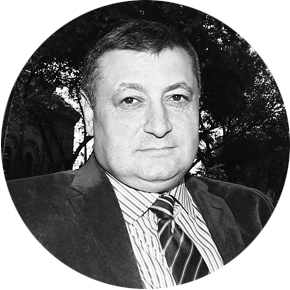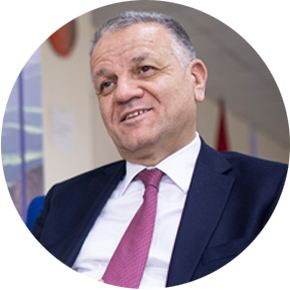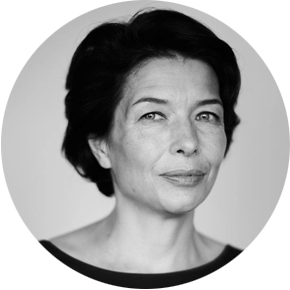For the second consecutive year, the work team of Armenian State Pedagogical University named after Khachatur Abovyan conducts the “Peculiarities of the Perception of the Phenomenon of the Armenian Genocide on Public Opinion” research study (details are available here, on p. 79).
The second stage of the study was carried out between March 15 and April 15, 2016, with the method of formalized interview. 560 Yerevan residents took part in the survey.
This May Mediamax talked about the 2015 survey with the head of the work team, PhD in Philosophy Hovhannes Hovhannisyan. Given the release of the new survey results, we asked Hovhannes Hovhannisyan to tell about the changes that occurred in public opinion.
- What moods relating the phenomenon of the Armenian Genocide did you discover during the second survey?
- During both 2015 and 2016 surveys, we provided the list of 12 probable moods and feelings to the people and offered to state which of those and to what extent they experience while talking about the Armenian Genocide.
Preserving the methodology and tools allowed us to register noteworthy, albeit not drastic changes in public opinion. We received stable indicators for eight components of the provided list in the 2015 and 2016 surveys. Changes occurred in the remaining four.
According to the data of both 2015 and 2016 surveys, the first place is occupied by the feeling of regret and pain of loss - 97.5%. The 26.1% of the participants experience this feeling considerably strong, while the 71.4% sense it much stronger.
The second one is the feeling of hatred against the ones who organized and committed the genocide (94.5%).
The third one is the feeling of endurance and the determination to live despite the catastrophe of the genocide – 93.3%.
The fourth one is the feeling of determination to get the loss back at least partly – 92.2%.
The fifth by intenseness is the mood of improving and making Armenia powerful with everyday work – 91.1%.
On the sixth place are the moods of struggle for demand and compensation – 90.9%.
The seventh is the feeling of hope for the future and optimism – 88.9%.
On the eighth place are the moods of wrath and revenge– 88.4%. This feeling is more expressed among the representatives of older generation (61 and older) – 91.7%, than among younger people (18-30 year olds) – about 84.2%, and is more expressed among the victims of genocide and their descendants who lost their homes.
The following four components showed tendencies of decrease.
Compared to last year, the wish to speak to others (to the people from other nations) about Armenians’ pain has dropped by 8.8%, making 68.2%.
Next comes the feeling of hesitation and alarm for the future – 67.3%. Compared to last year this indicator decreased by 5.8%. It is comparatively more expressed among older generation (46-61 and older) – about 72.1%, than among younger generation (18-45) – 63.4%. The feeling of depression and disappointment is experienced by 57.3% of those asked. This indicator decreased by 9.5% compared to last year.
The final mood summing up the list of the moods and feelings connected with the genocide is the feeling of a victim and persecuted – 56.1%, which is 11.7% less than the same index of last year. This feeling is more considerable among the participant of 61 and older age group - 63.9% and the most considerable among 37.0% of them. For comparison, this indicator is 24.0% among 46-60 year olds, and 21.9% among 18-45 year olds.
- How do you explain the decrease of pessimistic moods in the second survey?
- Such changes can be explained by several factors. The first is the continuous cultural policy of discarding the victim complex and the propaganda and discussions on its importance, undertaken by many public figures and organizations.
The second is the ongoing process of recognition and condemnation of the Armenian Genocide by different countries and international organizations. Aside from political, this is moral and psychological support for Armenians, and an additional guarantee of security.
The third and, in my opinion, the most important factor is the influence of the four-day unbridled war over Nagorno-Karabakh, started by Azerbaijan in April 2016. The four-day war of April 2016 was such a sobering and motivational drive for self-determination for the citizens of Armenia and Nagorno-Karabakh.
- Your survey was followed by certain events, which had large coverage in Armenian and foreign media and caused excitement among the public, for instance, the Aurora Prize ceremony, and application of the word “genocide” by Pope Francis during his visit to Armenia. In your opinion, what is the effect of these events?
- I will need a specific sociological research to answer your question, using numbers. However, I am deeply convinced that such events, be it the Aurora Prize ceremony, Pope Francis’s visit to Armenia and condemnation of the genocide, adoption of the Armenian Genocide Resolution by the German Bundestag or the law on criminalization of denial of the Armenian Genocide by the French Parliament, have positive effect on the public moods, increasing optimism for future and resolution to build and empower Armenia.
- Within the research study, you also discovered stances among the public regarding countries and political agencies that play a certain part in the process of recognition and condemnation of the genocide. What is the picture here?
- Out of twenty four considered organizations and countries with a positive attitude, France was picked as the first both in 2015 and 2016 by the 79.6% of the survey participants.
Russian Federation is on the second place – 69.8%. The third is Greece - 54.3%. The fourth place is taken by the first country to officially recognize and condemn the Armenian Genocide (1965), Uruguay – 43.0%. The fifth country is Italy – 41.4%.
The list of the countries and organizations with negative attitude towards Armenia and its problems is headed by Azerbaijan - 96.6%, and Turkey - 95.7%. The Islamic State is the third, as mentioned by the survey participants - 60.9%.
It is noteworthy that public opinion is rather sensitive to current events. Azerbaijan and Turkey shared the first place on the list of the countries and organizations with negative attitude towards Armenia in 2015, but in 2016 Azerbaijan gained more votes and became the sole leader of the list. Concerns about the Islamic State grew substantially (by about ¼).
Azerbaijan also leads the list of countries which received a negative attitude from the participants of the survey - 92.7%. Turkey is on the second place – 91.4%. The third one is Islamic State – 65.2%.
Mariam Manoyan talked to Hovhannes Hovhannisyan


























Comments
Dear visitors, You can place your opinion on the material using your Facebook account. Please, be polite and follow our simple rules: you are not allowed to make off - topic comments, place advertisements, use abusive and filthy language. The editorial staff reserves the right to moderate and delete comments in case of breach of the rules.